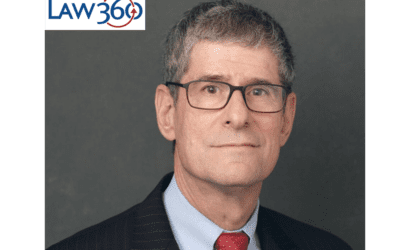DeBofsky, Sherman & Casciari attorneys Mark DeBofsky and Martina Sherman recently won the case of Wonsowski v. United of Omaha Life Ins. Co., 2016 WL 3088141 (N.D. Ill. June 2, 2016) following a bench trial before Magistrate Judge Geraldine Soat Brown in the federal court in Chicago. The case involved Shellie Wonsowski, who had worked as a mechanical engineer before becoming disabled on account of symptoms of idiopathic gastroparesis. Although Wonsowski initially qualified for benefits, United terminated her benefit payments after concluding she was capable of returning to her regular occupation, which was classified as requiring sedentary exertion.
Wonsowski struggled with gastroparesis since it was diagnosed in 2006. Gastroparesis is a condition that causes the stomach to fail to empty properly, resulting in abdominal pain, nausea, vomiting, and weight loss. After undergoing surgery to implant a gastric pacemaker in 2011, Wonsowski was unable to return to work and has not worked in any capacity since.
While on claim, Wonsowski underwent additional surgeries to replace the gastric pacemaker twice; and she has also suffered from severe osteoporosis in addition to the gastroparesis, which has resulted in multiple vertebral and rib fractures.
In 2014, United terminated Wonsowski’s benefits after receiving a report from a gastroenterologist it hired to evaluate her. That doctor testified at trial by deposition, along with Wonsowski’s principal treating doctor.
Wonsowski testified at the trial concerning the ongoing severity of her symptoms and her limited activities, recounting:
A typical day can really vary. Like my symptoms, the nausea is relentless. Some days, it gets really severe for no known reason. Other days, it’s better or more tolerable when my meds are — you know, I’m on several nausea meds. So if my meds are working and I can get up and shower and, you know, whatever, do the dishes, even get out grocery shopping or go see family or something, it’s a pretty darned good day. But other days, if it’s like really bad, then literally getting up from the couch and showering are probably not on the list. I’ll literally get up just to take my meds or ask my husband just to bring me something, and I try to sleep it off if I can or just watch TV, just try not to, you know, think too much about it.
The court fully credited that testimony, which led the court to conclude:
Although United of Omaha emphasizes the evidence that Wonsowski is able to perform work at the sedentary exertional level, that is only part of the analysis, and in this situation, the less important part. Most of the material duties of Wonsowski’s regular occupation are intellectual, not physical. “[U]nder an own occupation standard, medical evidence is only part of the equation. To assess a claimant’s ability to perform his own occupation, a decisionmaker must be aware of, and apply, the requirements of the occupation.” McDonough v. Aetna Life Ins. Co., 783 F.3d 374, 381 (1st Cir. 2015) (citation omitted).
However, the court found that neither the doctor United hired to examine Wonsowski, nor the consultant who was retained during the pre-litigation claim appeal “evaluated whether Wonsowski could perform the intellectual tasks required of [her] occupation continuously, on a full-time basis, in light of her physical limitations and the many medications she was then taking and continues to take.” Because even the doctor hired to perform an “independent” evaluation of Wonsowski acknowledged Wonsowski would likely experience an unpredictable number of “severe days” that would preclude her from working without interruptions or might require her to call in sick or leave to go home, the court concluded: “That does not describe a full-time professional occupation.”
The court wrapped up its ruling with the following summary:
The evidence shows that she is a motivated professional, having achieved a patent and having studied for and taken the professional engineering examination. Like Dr. Mehta and Dr. Berkowitz, the court finds no evidence that she is malingering or exaggerating her symptoms. Her professional career was derailed by the physical conditions she has endured and the resulting cognitive impairments that preclude her from performing her regular occupation on a full-time basis.
Based on that conclusion, judgment was entered in Plaintiff’s favor awarding Wonsowski the benefits due since August 18, 2014, prejudgment interest, and attorneys’ fees.






